Research in Natural Resources & the Environment: A Guide for Cornell NTRES Graduate Students: Home
- Books & Dissertations
- Evaluating Information
- Citation Management
- Data Management
- Demystifying the literature review This link opens in a new window
- Systematic Review Support This link opens in a new window

Albert R. Mann Library

Mann Library supports the instruction, research, and extension programs of Cornell University's College of Agriculture and Life Sciences and College of Human Ecology .
No matter where you are in the research process, we encourage you to ask for help when you need it!
Options include:
- Emailing [email protected]
- Requesting a personalized research consultation
- Using Chat 24/7
For more information, consult the Ask a Librarian page of the Cornell Libraries website.
Off-campus access

- When you’re off-campus, connect to databases, journals and e-books that would otherwise be restricted or hidden behind paywalls through Access Anywhere. The Access Anywhere bookmarklet allows you to access electronic resources when you’re not on campus. After installing Access Anywhere, it will show up as a bookmark in your internet browser. To use it, just go to any website you’re trying to access, click the bookmarklet, and Access Anywhere will “show” the website that you’re affiliated with Cornell.
Natural Resources and the Environment

Schachner, Hermann. (2009). Barbula spadicea (Sporenkapseln) . Wikepedia Commons.
Welcome to the library guide for Natural Resources and the Environment graduate students. Here you will find information regarding library resources, including the top scholarly journals in your field, citation management software, and library tools to make your life easier!
Online Tutorials
- LinkedIn Learning with Lynda.com LinkedIn Learning with content from Lynda.com is a constantly growing library of more than 1400 courses and 82,000 videos in streaming video format, and new material is added every week. Courses are offered at different skill levels in over 140 specialties. Subjects covered range from 3D + Animation; Audio; Business including Office and Google software; Design; Developer; Photography and Video; and Web and social media. Videos use screenshots, narration, live action, smart boards, charts and graphics, audio and include captioning.
Mann Library Research Team

GET & LINK YOUR ORCID iD
(1) Register for your ORCID iD. Use your Cornell email address when you sign up.
(2) Link your ORCID to Cornell by selecting Access through your institution when you sign in, and you won't have to remember a separate ORCID password.
- Next: Library Resources >>
- Last Updated: Oct 25, 2023 11:25 AM
- URL: https://guides.library.cornell.edu/NTRES-Grad

Faculty Considering Grad Students
The following faculty are considering graduate students for 2025.
We encourage applicants to contact, by email, individual faculty whose labs they are interested in, to initiate a conversation about shared interests. For suggestions on how to reach out to faculty, please see our tips for contacting potential advisors .
- Babonis, Leslie (Department of Ecology and Evolutionary Biology). Evolutionary development (Evo-Devo), origin of novelty, invertebrate biodiversity, cnidarians, ctenophores, gene regulation, cell identity, tissue morphogenesis, regeneration, evolution of multicellularity.
- Clark, Andrew G. (Departments of Molecular Biology and Genetics & Ecology and Evolutionary Biology). Genomic basis of adaptive evolution; theoretical and statistical population genetics; genetics of complex traits.
- Goodale, Christine L. (Department of Ecology and Evolutionary Biology). Forest biogeochemistry; land-use history and change; terrestrial carbon balance; and alteration of the global nitrogen cycle.
- Kessler, Andre (Department of Ecology and Evolutionary Biology). Molecular and chemical ecology, plant-insect interactions, multitrophic interactions, induced plant responses to herbivory.
- Moreau, Corrie S. (Departments of Entomology & Ecology and Evolutionary Biology). Ecology and evolution of symbiosis; macroevolution; social insect evolution; host-microbe interactions; speciation and evolutionary diversification; evolution of gut microbiota; biogeography; phylogenetics/phylogenomics; molecular clocks and divergence dating; biodiversity genomics; ant-plant mutualisms; entomology; comparative biology; microbiomes.
- Thaler, Jennifer S. (Departments of Entomology & Ecology and Evolutionary Biology). Insect-plant interactions, chemical ecology, tritrophic interactions.
- Therkildsen, Nina O. (Department of Natural Resources and the Environment). Population and evolutionary genomics, rapid adaptation, fisheries, conservation.
- Womack, Molly (Department of Ecology and Evolutionary Biology).
- Xu, Xiangtao (Department of Ecology and Evolutionary Biology). Ecological modeling/forecasting, ecological remote sensing, plant functional ecology, global change biology, terrestrial ecosystem ecology.
Cornell University PhD in Natural Resources & Conservation
Featured programs, how much does a doctorate in natural resources & conservation from cornell cost, cornell graduate tuition and fees.
| In State | Out of State | |
|---|---|---|
| Tuition | $29,500 | $29,500 |
| Fees | $542 | $542 |
Related Programs
Does cornell offer an online phd in natural resources & conservation, cornell doctorate student diversity for natural resources & conservation, male-to-female ratio.
About 20.0% of the students who received their PhD in natural resources and conservation in 2019-2020 were women. This is less than the nationwide number of 50.3%.
Racial-Ethnic Diversity
Racial-ethnic minority graduates* made up 40.0% of the natural resources and conservation doctor’s degrees at Cornell in 2019-2020. This is higher than the nationwide number of 15%.
| Race/Ethnicity | Number of Students |
|---|---|
| Asian | 1 |
| Black or African American | 0 |
| Hispanic or Latino | 1 |
| Native American or Alaska Native | 0 |
| Native Hawaiian or Pacific Islander | 0 |
| White | 2 |
| International Students | 1 |
| Other Races/Ethnicities | 0 |
PhD in Natural Resources & Conservation Focus Areas at Cornell
| Focus Area | Annual Graduates |
|---|---|
| 5 |
Popular Reports
Compare your school options.
You are using an outdated browser. Please upgrade your browser to improve your experience and security.
Natural Resources - PhD
Cornell university, ithaca, new york, ecology & evolutionary biology.
- Applied Ecology
- Community-based Nat. Res. Management
- Conservation Biology
- Ecosystem Biology and Biogeochemistry
- Fishery and Aquatic Science
- Forest Science
- Human Dimensions of Nat. Res. Management
- Policy and Institutional Analysis
- Program Development and Evaluation
- Quantitative Ecology
- Risk Analysis and Management
- Wildlife Science
Welcome to the Graduate Field of Natural Resources at Cornell University. The Graduate Field of Natural Resources is core to the mission of the Department and we foster a strong sense of community within the Graduate Field, which includes graduate faculty and students from within the Department of Natural Resources and across the University. The Field of Natural Resources offers students the freedom to design a graduate program that addresses their individual interests. Students work with faculty advisors to identify course requirements and to define a research or professional project.
Degrees Offered:
We offer two research degrees: the Master of Science and Doctorate of Philosophy.
No Student Experiences for this program yet
Natural Resources - MNR Virginia Tech
Sustainable Environmental Planning and Management - Certificate University of Connecticut
Natural Resources: Environmental Education and Science Communication - MNR University of Idaho
Online certificates include: Climate Change Education; Climate Resilience; Conservation Psychology; Geographic Information Systems (GIS); and Socially Responsible Organizational Leadership
Prepare to lead the management of natural resources and keep up with rapid changes in applications and methodology by earning an Ecosystem Management degree or certificate online through Penn State World Campus.
The University of Connecticut offers a 12-credit (4-course) online graduate certificate in environmental sustainability. Course credits can be applied towards the Master of Energy & Environmental Management.
You seem to be using an unsupported browser
To get the best user experience please use a supported browser. Here are a few we recommend:
- Field of Natural Resources
Field of Natural Resources / Field of Natural Resources is located in Ithaca, NY, in a small setting.
Degrees & Awards
Degrees offered.
| Degree | Concentration | Sub-concentration |
|---|---|---|
| Doctor of Philosophy (PhD) | Wildlife science | |
| Doctor of Philosophy (PhD) | Forest science | |
| Doctor of Philosophy (PhD) | Conservation biology | |
| Master of Professional Studies (MPS) | Ecosystem biology and biogeochemistry | |
| Master of Professional Studies (MPS) | Wildlife science | |
| Master of Science (MS) | Human dimensions of natural resources management | |
| Doctor of Philosophy (PhD) | Human dimensions of natural resources management | |
| Master of Professional Studies (MPS) | Human dimensions of natural resources management | |
| Master of Professional Studies (MPS) | Environmental management | |
| Master of Science (MS) | Wildlife science | |
| Doctor of Philosophy (PhD) | Ecosystem biology and biogeochemistry | |
| Doctor of Philosophy (PhD) | Quantitative ecology | |
| Master of Professional Studies (MPS) | Fishery and aquatic science | |
| Master of Professional Studies (MPS) | Forest science | |
| Doctor of Philosophy (PhD) | Fishery and aquatic science | |
| Doctor of Philosophy (PhD) | Program development and evaluation | |
| Master of Science (MS) | Fishery and aquatic science | |
| Master of Science (MS) | Community-based natural resources management | |
| Master of Science (MS) | Ecosystem biology and biogeochemistry | |
| Doctor of Philosophy (PhD) | Community-based natural resources management | |
| Doctor of Philosophy (PhD) | Policy and institutional analysis | |
| Master of Science (MS) | Forest science | |
| Master of Science (MS) | Program development and evaluation | |
| Master of Science (MS) | Policy and institutional analysis | |
| Master of Science (MS) | Conservation biology | |
| Master of Professional Studies (MPS) | Program development and evaluation | |
| Master of Science (MS) | Quantitative ecology |
Degrees Awarded
| Degree | Number Awarded |
|---|---|
| Master's Degrees | 8 |
| Doctoral Degrees | 7 |
Earning Your Degree
| Part-time study available? | No |
| Evening/weekend programs available? | No |
| Terminal master's degree available? | No |
Degree Requirements
| Degree | Requirement |
|---|---|
| Master's Degrees | Entrance Exam GRE General Test Thesis (MS), project paper (MPS) |
| Doctoral Degrees | Entrance Exam GRE General Test Comp Exam Required Thesis Required |
Acceptance Rate
Application deadlines.
| Type | Domestic | International | Priority date |
|---|---|---|---|
| Spring deadline | October 30th | Not reported | No |
Entrance Requirements
| Exam | Details | |
|---|---|---|
| Master's Degree Exam | GRE General Test | '); |
| Master's Degree Requirements | 2 letters of recommendation | |
| Doctoral Degree Exam | GRE General Test | '); |
| Doctoral Degree Requirements | 2 letters of recommendation | |
| Exam | Details | |
| TOEFL: Required | TOEFL Paper score: 550 TOEFL IBT score: 77 | '); |
Tuition & Fees
Financial support.
| Financial award applicants must submit: | FAFSA |
|---|---|
| Types of financial support available | Fellowships Research Assistantships Teaching Assistantships Health Care Benefits Institutionally-sponsored Loans Scholarship and/or loans Graduate Assistantships Tuition waivers for student who do not receive fellowships or assistantships |
Student Body
Race/ethnicity.
| Hispanic/Latino | 1.54% |
|---|---|
| Black or African American | 0% |
| White or Caucasian | 58% |
| American Indian or Alaska Native | 0% |
| Asian | 1.54% |
| Native Hawaiian or Pacific Islander | 0% |
| Two or more races | 0% |
| Unknown | 10.77% |
| Focus of faculty research: | Ecosystem-level dynamics, systems modeling, conservation biology/management, resource management's human dimensions, biogeochemistry |
|---|---|
| Externally sponsored research expenditures last year: | 0 |
Location & Contact
- Grad Schools
- Search Results
- Cornell University
- Search Search
- events.cornell.edu
- Event Details

Invasive Species on the Outlet Trail
Friday, July 19, 2024
290-298 Water St, Penn Yan, NY 14527
Come play a game with CCE- Yates to learn about local invasive species before we walk part of the Keuka Outlet Trail looking for invaders!
When: Friday, July 19th
Where: Penn Yan Boat Launch
Who: Families and Teens
Presented by Lydia Williams, Natural Resource Program Coordinator, CCE-Yates County
https://reg.cce.cornell.edu/invasives...
Lydia Williams
315-536-5123
Recent Activity
No recent activity
People Interested
No activity yet
Getting Here
Your browser does not support iframes.
You're not going yet!
This event requires registration.
Login to Cornell
Login to interact with events, personalize your calendar, and get recommendations.
/images/cornell/logo35pt_cornell_white.svg" alt="cornell natural resources phd"> Cornell University --> Graduate School
Agriculture and life sciences (natural resources) m.p.s. (ithaca), field of study.
Natural Resources and the Environment
Program Description
The MPS degree program at Cornell CALS is ideal for career-focused students interested in the thorough study of issues and advancements in the fields of life, social, and environmental sciences and agriculture.
Though similar to a Master of Science (MS) degree in its academic rigor, the MPS degree differs from a traditional MS degree in its structure and focus. An MS is research based, with students building a thesis over the course of two or three years. In contrast, the MPS degree is a one-year, course-based program where students study the intricacies and in-depth questions of their field of study. Instead of a thesis or research project, MPS students complete a capstone project during their final semester. To understand this difference in greater detail, please visit our FAQ page.
At Cornell CALS, our MPS program spans multiple fields of study within the realm of agriculture and life sciences, including animal science, food science, global development, horticulture, plant and soil science, biological and environmental engineering, and more.
The Master of Professional Studies program has two main components:
- Coursework: Students work with a faculty advisor to map out their individualized course of study based on their areas of interest. The majority of courses (20 credits) will be within CALS; however, students have the opportunity to take courses across Cornell.
- Capstone project: With the guidance of a faculty advisor, students work on solving a real-world problem.
Learn more about natural resources M.P.S. .
While students have the opportunity to customize their own course of study with their faculty advisor, the field offers several areas of specialization for MPS degree candidates. Each of these areas include a suggested curriculum of core and elective courses that fulfill the requirements of the MPS in Agriculture and Life Sciences degree while placing particular emphasis in an area of specialization. Specializations include: water resource management and social analysis and environmental decision making.
Contact Information
111D Fernow Hall Cornell University Ithaca, NY 14853
Concentrations by Subject
- applied ecology
- community-based natural resources management
- conservation biology
- fishery and aquatic science
- policy and institutional analysis
- program development and evaluation
- quantitative ecology
- risk analysis and management
- social analysis & environmental decision making (minor) (minor)
- water resource management (minor) (minor)
- wildlife science
Visit the Graduate School's Tuition Rates page.
Application Requirements and Deadlines
Fall, March 31: applications received after the application deadline will be considered if space is available
Requirements Summary:
- Complete Cornell’s Online Graduate School Application . Get started by setting up an ApplyWeb account. Once you have an account, you can go to the online application to begin the process.
- Submit unofficial copies of your college and university transcripts. An official paper transcript is required for all admitted students.
- Submit your résumé or CV and letters of recommendation. Most graduate fields require 2-3 letters of recommendation.
- All applicants must meet the English Language Proficiency Requirement . Cornell does not accept PTE Academic scores or any other alternatives.
- Submit a Statement of Purpose.
Learning Outcomes
- Problem-Solving and Analytical Skills
- Specialized Subject Matter Competence
- Writing Skills
- Group Work, Management and Leadership Skills
- Communication and Presentation Skills
Narrow Your Search
Return to Field of Study listing
Clear Filters
Table of Contents
Discover CALS
See how our current work and research is bringing new thinking and new solutions to some of today's biggest challenges.
- Agriculture
- Applied Economics
- Climate Change
- Communication
- Environment
- Global Development
- Health + Nutrition

Lessons from US agricultural cooperatives for China
- Department of Global Development
The Humphrey PACT (Practitioner - Assistant - Collaborative - Training) Program pairs undergraduate students in Global Development with Hubert H. Humphrey Fellows to work on a research endeavor in the fields of agriculture, rural development, and natural resource management. In this bilateral exchange, each undergrad is assigned as a research assistant, contributing to the Humphrey Fellow’s work from their home countries. Humphrey Fellows, who are mid-career professionals from around the world, gain support from students, while students get direct experiences with real-world development projects.
In this field note, Aijun Yang (Humphrey Fellow from China) and Lauren Chuhta ‘26 (Global Development), reflect on their in-depth study on why agricultural cooperatives succeed in certain contexts, and how the growth of agricultural cooperatives could boost community vitality in low-income countries. Their PACT research partnership builds on Aijun’s ten-year career working with cooperatives in China, and Lauren’s commitment to empower community-based initiatives around the globe.
What big problems does your research aim to address?
Agricultural cooperatives are a proven way to empower farmers both financially and socially. This economic and community tool, however, is unequally accessible: only 6% of the world’s cooperatives are located in low-income countries. Our research investigated what makes agricultural co-ops successful in high-income nations like the U.S. and how these factors can be translated to alternative settings across the globe. By identifying principles of success, we aim to contribute to the growth of ag cooperatives in low-income countries as a means to empower international farmers.
How does your research address these problems?
Aijun : Over the past decade, I have been actively involved in supporting the development of cooperatives in China through research, capacity building, coaching, and exchanges. This period has seen significant growth in the number of cooperatives and the introduction of favorable government policies. However, our research—which includes an analysis of over 1,000 cooperatives in Southern China—reveals that only a handful of these cooperatives are truly successful. Many are struggling, with members feeling confused or lost.
Comparatively, the U.S. has a much longer history of modern cooperative development. American cooperatives generally outperform those in China and other developing countries in terms of membership, revenue, and management. Our research has conducted an in-depth study of the success factors of cooperatives in the U.S., providing insights into how the developing world might better develop this sector. The goal is to enhance the economic and social status of farmers by applying these insights.
Lauren : Our research project triangulated national and international data, academic literature, and a case study on Land O’ Lakes to identify keys to successfully growing and managing an agricultural cooperative as a community tool. We found that maintaining a focus on constituent producers, quality personnel, and savvy financial management are central challenges for agricultural cooperatives. We also found that emphasizing research and development, marketing, and experienced leadership aretraits of successful and long-living ag co-ops. These themes highlight several areas for future research on specific attributes of cooperative development. Additionally, these results illuminate the importance of educational campaigns and community capacity-building programs in low-income countries in creating room for the sustainable development of agricultural co-ops.

What’s your biggest take-away from your time in this research partnership?
Aijun : My collaboration with Lauren was not only productive but also enjoyable. One of my key takeaways from this partnership extended beyond our research findings to the process and communication methods we employed. At the beginning of the project, Lauren and I engaged in thorough discussions regarding expected deliverables, our work plan, and the division of work. This upfront clarity ensured that we were consistently aligned and kept our work on track throughout the project.
Besides the work itself, I deeply valued the cultural exchange that took place. Lauren generously shared insights into American education and culture, which enriched my understanding and appreciation of the context in which U.S. cooperatives operate. This aspect of our collaboration was particularly enlightening and added a unique dimension to my professional experience and personal growth. I have a question for undergraduate students – what does sophomore mean? " Lauren and I figured out, and you’d find the answer so philosophical.
Lauren : I’ve found a valuable mentor, partner, and friend in Aijun. Our Wednesday meetings were always a highlight of my week: after covering our work agenda, we would often spend another half hour or so discussing everything from holiday traditions to our agricultural backgrounds. Aijun’s general enthusiasm exponentiated my passion for our research.
It was through this contagious excitement that I discovered new nuances in impact, particularly how tangible it can be. When I first began working on our literature review, I scheduled myself a large chunk of time to sit in my favorite library and really dive into the research. Sitting among stacks of worn, colorful books, I realized that I was turning the knowledge around me into something that could really help people. Under Aijun’s guidance and optimism, I maintained this sense of actionable purpose throughout the research partnership, and I hold onto it still.
Why did you want to get involved with the PACT program?
Aijun : I was drawn to the PACT program by the compelling research projects and collaborations that past Humphrey Fellow cohorts have undertaken, particularly their work with undergraduate students. These inspiring precedents motivated me to focus my research on cooperatives. I was fortunate to partner with Lauren, who shares my passion for this subject. Lauren's rich background in agriculture and communication, combined with her exceptional passion, rigor, and time management skills, made our collaboration particularly rewarding.
Lauren : From prior publications and seminars, I knew the PACT Program to be a valuable way to connect with one of the department’s greatest assets, the Humphrey Fellows. Connecting one-on-one with an experienced development professional—particularly someone with shared topical interests—is so rewarding as an undergraduate who’s still learning how to transition from textbooks to the real world of development work. I’d been applying for a PACT position since I first learned about it, and I’m profoundly grateful to have been selected—to have been extended the program’s general learning opportunities, yes, but especially to have found a mentor in Aijun.
What are the next steps in this research?
Aijun : Moving forward, I plan to translate our research report into Chinese to make it accessible to a Chinese audience. This initiative aims to enhance understanding of cooperative and agricultural development in the U.S., fostering growth and potentially facilitating collaboration between the U.S. and China. Additionally, inspired by our findings, I am beginning to write a booklet. This booklet will cover the history of cooperatives, key events, various types, interviews with board members, and case studies.
I intend to involve Lauren in this next phase, particularly for literature review and editorial support. Moreover, I am planning to publish papers on cooperatives in the U.S. and conduct comparative studies to further explore this field.
Lauren : Aijun is incredibly dedicated to this work, and I’m excited to stay involved with these next steps.
About the authors

Humphrey Fellow, 2023-24 (China) Specialization: Farmer cooperative development; sustainable agriculture and rural development, project management, facilitation, and stakeholder management Future goals: My time as a Humphrey Fellow has inspired me to pursue a Ph.D. with a focus on agribusiness and agricultural cooperatives. Over the long term, I am committed to working in the nonprofit sector to facilitate sustainable rural development in the developing world.

Majors: Global Development, Communication Research focus: Community empowerment Future goals: Travel across the globe getting to know communities and help establish their equitable partnerships with international aid organizations.
Humphrey Fellowship Program at Cornell
Since 1978, the Fulbright exchange Hubert H. Humphrey Fellowship Program at Cornell has provided accomplished professionals from countries with emerging economies an international enrichment opportunity in leadership and public service.
At Cornell, our Humphrey Fellows focus in one of three, often overlapping, areas of interest: agriculture, rural development, and natural resource management. Through the U.S. Department of State-sponsored yearlong exchange of professional development and networking, our Humphrey Fellows can go on to effect profound development changes in their home countries.
- Learn more about the Humphrey Fellowship

Keep Exploring

Cornell Atkinson’s annual Academic Venture Fund will provide nearly $1 million in seed funding to support research teams across five colleges and 11 departments, many with key external partnerships.
- Cornell Atkinson
- Animal Science
- Ecology and Evolutionary Biology

We openly share valuable knowledge.
Sign up for more insights, discoveries and solutions.

Outside USA: +1‑607‑330‑3200

Executive Master of Human Resources
Offered through Cornell University’s ILR School, the Executive Master of Human Resources program is expressly designed for HR professionals aiming to ascend to executive leadership roles. This advanced degree equips participants with a greater understanding of the crucial connections between business strategy and workforce management. It fosters deep expertise in organizational design, talent development, change leadership, and other fundamental aspects of HR excellence, empowering graduates to drive strategic initiatives and lead transformative change within their organizations.
- Value Creation and Profitability
- Change, Disruption and Growth
- Understanding Financial Statements
- Aligning HR Strategy with Organizational Strategy
- Strategic Talent Analytics
- Leading Strategic Change Initiatives
- Navigating Power Relationships
- Getting Results Through Talent Management
- Strategic Engagement
- Using Design Thinking in Human Resources
- Total Rewards Compensation
- Diversity and Inclusion in Practice
- Designing Effective Teams
- Diversity and Cross-Cultural Teams
- Human Resource Leadership
- Coaching Skills for Leaders
- Strategic Decision-Making
- Negotiation Skills
- Agile Project Management Approaches
- Strategic Human Resource Management
- Labor Relations Strategy and High-Performance Work Systems
- Managing and Developing Talent
- Organizational Behavior: Managing Change
- HR Leadership
- Global and Comparative Employment Relations
- Negotiations
How It Works
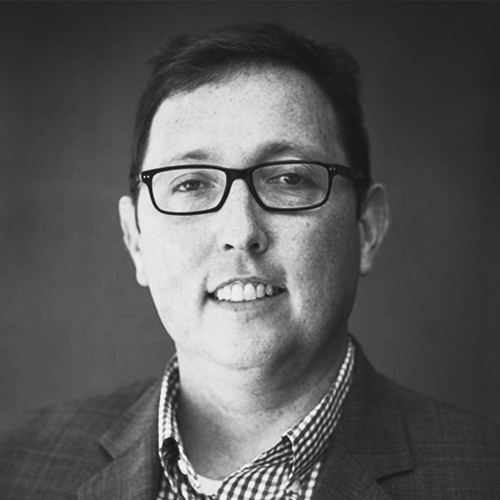
- Certificates Authored
Ariel Avgar is an Associate Professor at the ILR School at Cornell University and Associate Director for Research and Student Engagement with the Scheinman Institute on Conflict Resolution. His research focuses on two primary areas within employment relations. First, he explores the role that employment relations factors play in the healthcare industry. As such, he examines the effects of a variety of workplace innovations, including new technology, delivery of care models, and innovative work practices, on patients, frontline employees, and organizational performance. Second, he studies conflict and its management in organizations with a focus on the strategic choices made by firms. He seeks to better understand the consequences of conflict for employees and employers. In addition, his research investigates the adoption and implementation of organizational level conflict management practices and systems. His research has been published in a number of journals including: Industrial and Labor Relations Review, Industrial Relations, British Journal of Industrial Relations, Ohio State Journal on Dispute Resolution, International Journal of Conflict Management, International Journal of Human Resource Management, Negotiation and Conflict Management Review, Advances in Industrial and Labor Relations, Health Services Research and Medical Care. He received the 2008 Best Dissertation Award and the 2013 John T. Dunlop Scholar Award, both from the Labor and Employment Relations Association and serves as the Editor-in-Chief for the association. His paper (with Eric J. Neuman) titled “Blind spots and mirages: A dyadic approach to the study of team conflict” received the 2012 Best Paper: New Directions Award from the Academy of Management Conflict Management Division. He received a Ph.D. in Industrial Relations from the ILR School at Cornell University and a B.A. in Sociology and an LL.B in Law from Hebrew University. He served as Law Clerk for the President of the Israeli National Labor Court before being admitted into the Israeli Bar. Prior to joining ILR, he was an associate professor (2014-2016) and assistant professor (2008-2014) at the School of Labor and Employment Relations at the University of Illinois at Urbana-Champaign.
- Persuasive Communication
- Performance Leadership
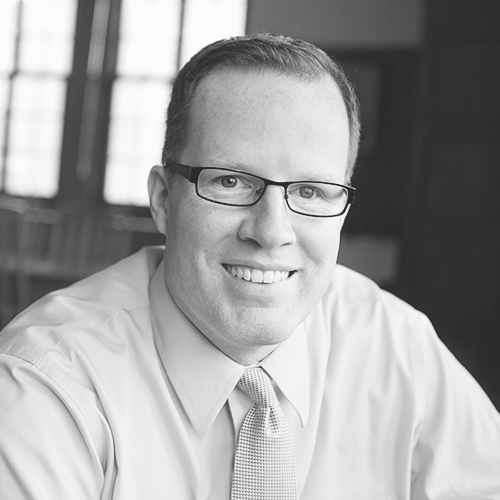
Bradford S. Bell is the William J. Conaty Professor of Strategic Human Resources and Director of the Center for Advanced Human Resource Studies (CAHRS) in the ILR School at Cornell University. He received his B.A. in Psychology from the University of Maryland at College Park and his M.A. and Ph.D. in Industrial and Organizational Psychology from Michigan State University. Professor Bell’s research and teaching interests include talent management, team development and effectiveness, and virtual work. He is a former editor of Personnel Psychology and a fellow of the Society for Industrial and Organizational Psychology (SIOP) and the American Psychological Association (APA).
- Hybrid Work Strategy
- Administrative Management Program
- HR Analytics
- Recruiting and Talent Acquisition
- HR Transformation
- Human Resources Management
- Strategic Human Resources Leadership

Vanessa Bohns is an Associate Professor of Organizational Behavior in the School of Industrial and Labor Relations (ILR) at Cornell University. Her research focuses broadly on social influence and the psychology of compliance and consent. In particular, she examines the extent to which people recognize the influence they have over others in various interpersonal interactions, including asking for help, encouraging one’s peers to engage in questionable behaviors, and making romantic advances. Additional research interests include prosocial behavior, perspective-taking, and self-conscious emotions.

Diane Burton is a professor in the ILR School at Cornell University. Her primary appointment is in human resource studies, with courtesy appointments in organizational behavior and sociology. Prior to joining the Cornell faculty in 2009, Professor Burton was a faculty member at the MIT Sloan School of Management. She began her academic career at the Harvard Business School teaching leadership and organizational behavior. Professor Burton earned her Ph.D. in sociology at Stanford University and served as a lecturer and researcher in organizational behavior and human resources management at the Stanford Graduate School of Business.
- Organizational Design
- Human Resources Essentials
- Leadership Essentials

Christopher J. Collins is an Associate Professor of Human Resource Management and Director of CAHRS in the ILR School at Cornell University. He earned his Ph.D. in Organizational Behavior and Human Resources from the Robert H. Smith School of Business at the University of Maryland.
Dr. Collins’ teaches, conducts research, and does consulting in the areas of strategic human resource management, the role of HR practices and leadership in driving employee engagement, and the role of HR in driving firm innovation and knowledge creation. His research has been accepted for publication in the Academy of Management Journal, Journal of Applied Psychology, Personnel Psychology, Human Resource Management Review, and Human Performance. In addition, Dr. Collins serves on the editorial boards of the Academy of Management Journal, Journal of Applied Psychology, the Journal of Management, and Personnel Psychology.
He currently teaches courses in Human Resource Management, Organizational Consulting, and Business Strategy to masters and undergraduate students in the ILR School at Cornell University. Dr. Collins has taught executive development programs at Cornell University and the Society of Human Resource Management. He has also worked as a private HR consultant or conducted executive development programs to multiple Fortune 500 organizations and several startup organizations. His consulting work has primarily focused on talent management, employee engagement, and strategic HR planning.
Dr. Collins is a member of the Academy of Management, Strategic Management Society, and Society for Human Resource Management.
- Change Management

John Hausknecht is a Professor of Human Resource Studies at Cornell University. He earned his Ph.D. in 2003 from Penn State University with a major in industrial/organizational psychology and minor in management. He received the 2004 S. Rains Wallace Award for the best dissertation in the field of industrial/organizational psychology. Professor Hausknecht’s research primarily falls within the domain of staffing and has appeared in the Academy of Management Journal, Journal of Applied Psychology, and Personnel Psychology. Recent papers have examined applicant persistence in selection settings, reactions to company hiring practices, and predictors and consequences of collective-level absenteeism and turnover. He currently serves on the editorial boards of the Academy of Management Journal, Journal of Applied Psychology, and Personnel Psychology.
Professor Hausknecht teaches undergraduate and graduate-level courses on human resource management, staffing organizations, and HR analytics. He received the ILR School’s MacIntyre Award for exemplary teaching in 2008. Prior to academia, he worked as a consultant to Fortune 500 firms in the areas of leadership assessment, talent management, and organizational change. Professor Hausknecht is a member of the Academy of Management, American Psychological Association, Society for Industrial and Organizational Psychology, and Society for Human Resource Management.
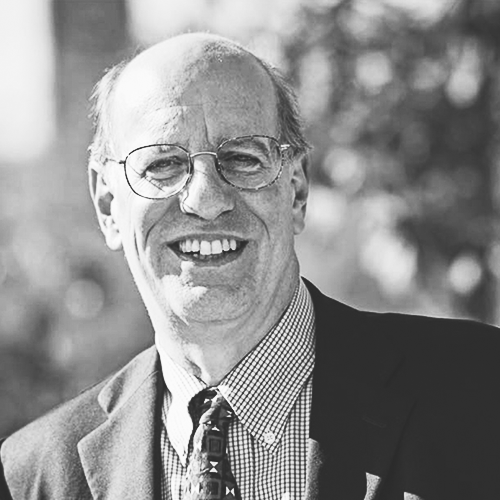
Harry C. Katz is the Jack Sheinkman Professor of Collective Bargaining at Cornell University’s ILR School and the director of ILR’s Scheinman Institute on Conflict Resolution. He received his doctorate in economics from the University of California at Berkeley. After teaching at the Massachusetts Institute of Technology, Professor Katz came to ILR in 1985. His areas of expertise include labor-management cooperation, labor relations, and contract negotiations.
- Labor Relations

Rebecca Kehoe is an Associate Professor of Human Resource Studies in the ILR School at Cornell University. Her scholarship brings a strategic human resource management perspective to the interplay of human capital and the broader social and organizational contexts in which it is developed and employed. Professor Kehoe’s recent areas of focus have included star performers, alignment of HR systems and business strategy, and process-based perspectives of HR system design and implementation. Her research has appeared in the Academy of Management Journal, Strategic Management Journal, Journal of Applied Psychology, Journal of Management, Personnel Psychology, and ILR Review. Professor Kehoe has served as a representative-at-large and on the leadership track for the Strategic Human Capital Interest Group within the Strategic Management Society and on the executive committee for the HR Division of the Academy of Management. She is currently an Associate Editor at Personnel Psychology.

JR Keller is an Associate Professor of Human Resource Studies in the ILR School at Cornell University. His research focuses on how firms combine internal and external hiring to meet their human capital needs as well as the various ways individuals build careers within and across organizations. Professor Keller has explored the factors which lead firms to hire externally versus promote from within, supply chain approaches to talent management, and the use of nonstandard work arrangements. His work has appeared in the Administrative Science Quarterly, Academy of Management Journal, Academy of Management Review, ILR Review, and the Annual Review of Organizational Psychology and Organizational Behavior, as well as a recent book on strategic talent management. Professor Keller earned his Ph.D. in Management from the Wharton School of Business and holds a Master’s in Adult Education from Indiana University along with undergraduate degrees in Finance and Computer Applications from the University of Notre Dame.
- Diversity, Equity, and Inclusion: Building a Diverse Workforce
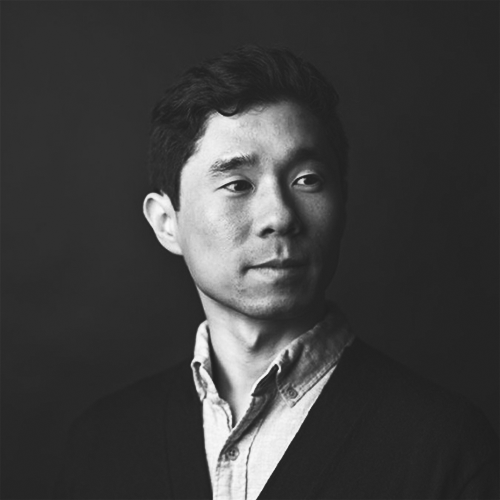
Brian Lucas received his Ph.D. in Management and Organizations from Northwestern University, his M.A. in Social-Organizational Psychology from Columbia University, and his B.A. in Psychology from Bucknell University. Prior to joining Cornell, Professor Lucas taught at Northwestern University’s Kellogg School of Management and the University of Chicago’s Booth School of Business. His research investigates the psychology of judgments, beliefs, and decision making, particularly in the domains of creativity and morality/ethical behavior. Some related research interests include empathy, perspective taking, hypocrisy, and hierarchy beliefs.
Professor Lucas’ research has been published in academic journals such as Psychological Science, the Journal of Personality and Social Psychology, the Academy of Management Journal, and Organizational Behavior and Human Decision Processes, and has been covered by media outlets such as The New York Times, The Atlantic, and Harvard Business Review. Professor Lucas currently teaches Managing for Creativity (ILROB 4260), Leading and Managing Teams (ILROB 5275), and Introduction to Organizational Behavior (ILROB 1220).
Student Spotlight
Hear from EMHRM Students about the impact of the program.
Who Should Enroll
- HR professionals with eight or more years of work experience
- Professionals with related leadership experience and a demonstrated interest in HR may be considered
Request More Information by completing the form below.

Ph.D. student in Natural Resources Management
The Ph.D. student will work under the supervision of Dr. Shawn Grushecky and Dr. Jamie Schuler at the Natural Resource Analysis Center (NRAC) within the Davis College of Agriculture, Natural Resources, and Design. This project focuses on large-scale forest, water, and wildlife management, aiming to develop systems of checks and balances for carbon, biodiversity, and other nature-based credits.
The student will contribute to enhancing carbon management activities and carbon accounting to support public companies in achieving sustainability and net-zero goals. Research techniques will include (but are not limited to) landscape analysis, watershed-based modeling, remote sensing, spatial decision support, and economic development analysis.
The successful candidate will be exposed to a wide range of skills, data collection methods, and analytical tools. All research conducted at NRAC will include the dissemination of findings to partners as part of the graduate responsibilities.
- A BS in ecology, environmental science, forestry, wildlife science, natural resource management, or a suitable equivalent at a minimum; preferred candidates will have an MS.
- Demonstrated experience in written and verbal communication.
- Basic understanding of GIS, remote sensing, and statistical analysis.
Tuition waiver
Contact Dr. Shawn Grushecky ([email protected]) or Dr. Jamie Schuler ([email protected]) with applications.
Applications should include
- A cover letter
- A CV; all components should be merged into a single PDF document.
Please contact them with any questions or inquiries about the position.
Application reviews will begin on July 15, 2024, and will continue until the position is filled.

Support Warnell
We appreciate your financial support. Your gift is important to us and helps support critical opportunities for students and faculty alike, including lectures, travel support, and any number of educational events that augment the classroom experience. Learn more about giving .
Every dollar given has a direct impact upon our students and faculty.
Get in touch
Submit a Student Complaint
- Data & knowledge
Opportunities

- Land Ambassadors
- Internships
- Procurement
Passionate about development, land-related issues and our planet?
We offer a broad range of opportunities to participate in our work and make a difference in protecting our land – from graduate internships to consultancies and staff positions . You can also explore opportunities for professional development via our online e-learning platform .
We also cooperate with a number of funding institutions to mobilize financial resources, and invite you to explore the ' Partners ' page to discover more.
For business entities, the information on the current tenders and the guidelines for the UNCCD procurement process can be found under ' Procurement '.
Beekeeping, hydropower: Cornell Atkinson awards nearly $1M in grants
Ecology and Environmental Biology
By | Krisy Gashler , Cornell Chronicle
More News from A&S
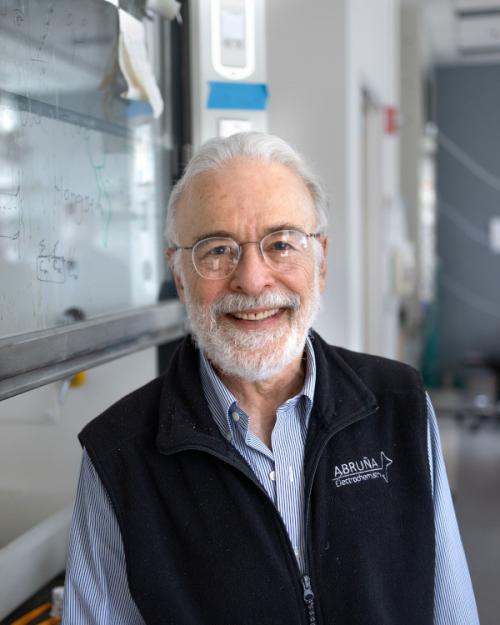
Abruña receives Global Energy Prize

Childcare workers built movement to raise pay, include more families
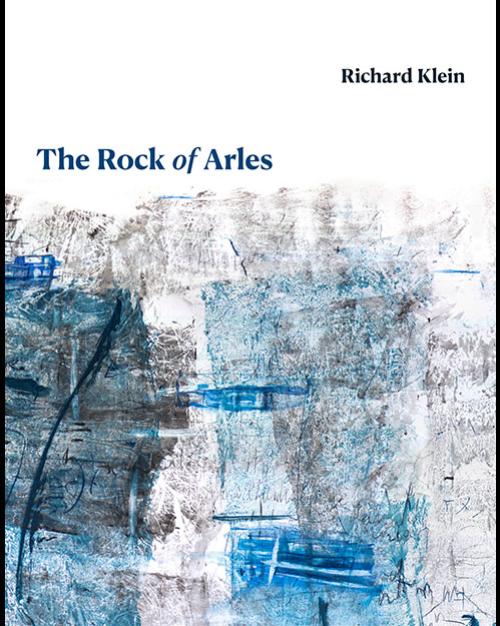
Your July 2024 reads
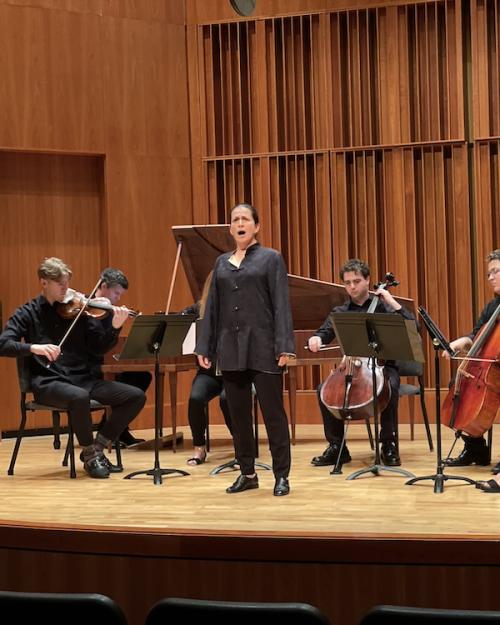
Forte/Piano Summer Academy returns to Cornell
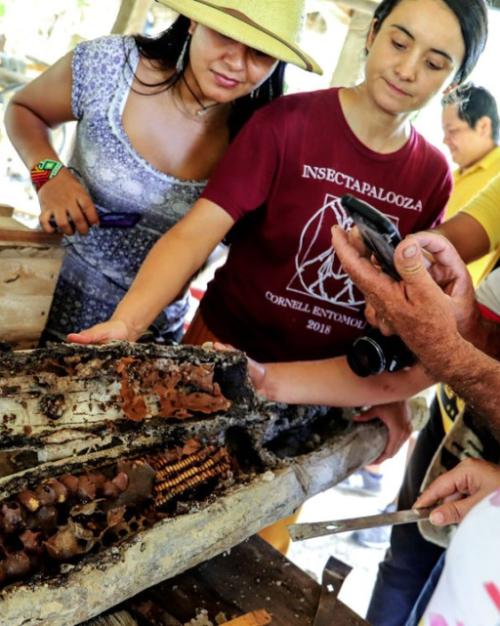

40 Facts About Elektrostal
Written by Lanette Mayes
Modified & Updated: 01 Jun 2024
Reviewed by Jessica Corbett

Elektrostal is a vibrant city located in the Moscow Oblast region of Russia. With a rich history, stunning architecture, and a thriving community, Elektrostal is a city that has much to offer. Whether you are a history buff, nature enthusiast, or simply curious about different cultures, Elektrostal is sure to captivate you.
This article will provide you with 40 fascinating facts about Elektrostal, giving you a better understanding of why this city is worth exploring. From its origins as an industrial hub to its modern-day charm, we will delve into the various aspects that make Elektrostal a unique and must-visit destination.
So, join us as we uncover the hidden treasures of Elektrostal and discover what makes this city a true gem in the heart of Russia.
Key Takeaways:
- Elektrostal, known as the “Motor City of Russia,” is a vibrant and growing city with a rich industrial history, offering diverse cultural experiences and a strong commitment to environmental sustainability.
- With its convenient location near Moscow, Elektrostal provides a picturesque landscape, vibrant nightlife, and a range of recreational activities, making it an ideal destination for residents and visitors alike.
Known as the “Motor City of Russia.”
Elektrostal, a city located in the Moscow Oblast region of Russia, earned the nickname “Motor City” due to its significant involvement in the automotive industry.
Home to the Elektrostal Metallurgical Plant.
Elektrostal is renowned for its metallurgical plant, which has been producing high-quality steel and alloys since its establishment in 1916.
Boasts a rich industrial heritage.
Elektrostal has a long history of industrial development, contributing to the growth and progress of the region.
Founded in 1916.
The city of Elektrostal was founded in 1916 as a result of the construction of the Elektrostal Metallurgical Plant.
Located approximately 50 kilometers east of Moscow.
Elektrostal is situated in close proximity to the Russian capital, making it easily accessible for both residents and visitors.
Known for its vibrant cultural scene.
Elektrostal is home to several cultural institutions, including museums, theaters, and art galleries that showcase the city’s rich artistic heritage.
A popular destination for nature lovers.
Surrounded by picturesque landscapes and forests, Elektrostal offers ample opportunities for outdoor activities such as hiking, camping, and birdwatching.
Hosts the annual Elektrostal City Day celebrations.
Every year, Elektrostal organizes festive events and activities to celebrate its founding, bringing together residents and visitors in a spirit of unity and joy.
Has a population of approximately 160,000 people.
Elektrostal is home to a diverse and vibrant community of around 160,000 residents, contributing to its dynamic atmosphere.
Boasts excellent education facilities.
The city is known for its well-established educational institutions, providing quality education to students of all ages.
A center for scientific research and innovation.
Elektrostal serves as an important hub for scientific research, particularly in the fields of metallurgy , materials science, and engineering.
Surrounded by picturesque lakes.
The city is blessed with numerous beautiful lakes , offering scenic views and recreational opportunities for locals and visitors alike.
Well-connected transportation system.
Elektrostal benefits from an efficient transportation network, including highways, railways, and public transportation options, ensuring convenient travel within and beyond the city.
Famous for its traditional Russian cuisine.
Food enthusiasts can indulge in authentic Russian dishes at numerous restaurants and cafes scattered throughout Elektrostal.
Home to notable architectural landmarks.
Elektrostal boasts impressive architecture, including the Church of the Transfiguration of the Lord and the Elektrostal Palace of Culture.
Offers a wide range of recreational facilities.
Residents and visitors can enjoy various recreational activities, such as sports complexes, swimming pools, and fitness centers, enhancing the overall quality of life.
Provides a high standard of healthcare.
Elektrostal is equipped with modern medical facilities, ensuring residents have access to quality healthcare services.
Home to the Elektrostal History Museum.
The Elektrostal History Museum showcases the city’s fascinating past through exhibitions and displays.
A hub for sports enthusiasts.
Elektrostal is passionate about sports, with numerous stadiums, arenas, and sports clubs offering opportunities for athletes and spectators.
Celebrates diverse cultural festivals.
Throughout the year, Elektrostal hosts a variety of cultural festivals, celebrating different ethnicities, traditions, and art forms.
Electric power played a significant role in its early development.
Elektrostal owes its name and initial growth to the establishment of electric power stations and the utilization of electricity in the industrial sector.
Boasts a thriving economy.
The city’s strong industrial base, coupled with its strategic location near Moscow, has contributed to Elektrostal’s prosperous economic status.
Houses the Elektrostal Drama Theater.
The Elektrostal Drama Theater is a cultural centerpiece, attracting theater enthusiasts from far and wide.
Popular destination for winter sports.
Elektrostal’s proximity to ski resorts and winter sport facilities makes it a favorite destination for skiing, snowboarding, and other winter activities.
Promotes environmental sustainability.
Elektrostal prioritizes environmental protection and sustainability, implementing initiatives to reduce pollution and preserve natural resources.
Home to renowned educational institutions.
Elektrostal is known for its prestigious schools and universities, offering a wide range of academic programs to students.
Committed to cultural preservation.
The city values its cultural heritage and takes active steps to preserve and promote traditional customs, crafts, and arts.
Hosts an annual International Film Festival.
The Elektrostal International Film Festival attracts filmmakers and cinema enthusiasts from around the world, showcasing a diverse range of films.
Encourages entrepreneurship and innovation.
Elektrostal supports aspiring entrepreneurs and fosters a culture of innovation, providing opportunities for startups and business development .
Offers a range of housing options.
Elektrostal provides diverse housing options, including apartments, houses, and residential complexes, catering to different lifestyles and budgets.
Home to notable sports teams.
Elektrostal is proud of its sports legacy , with several successful sports teams competing at regional and national levels.
Boasts a vibrant nightlife scene.
Residents and visitors can enjoy a lively nightlife in Elektrostal, with numerous bars, clubs, and entertainment venues.
Promotes cultural exchange and international relations.
Elektrostal actively engages in international partnerships, cultural exchanges, and diplomatic collaborations to foster global connections.
Surrounded by beautiful nature reserves.
Nearby nature reserves, such as the Barybino Forest and Luchinskoye Lake, offer opportunities for nature enthusiasts to explore and appreciate the region’s biodiversity.
Commemorates historical events.
The city pays tribute to significant historical events through memorials, monuments, and exhibitions, ensuring the preservation of collective memory.
Promotes sports and youth development.
Elektrostal invests in sports infrastructure and programs to encourage youth participation, health, and physical fitness.
Hosts annual cultural and artistic festivals.
Throughout the year, Elektrostal celebrates its cultural diversity through festivals dedicated to music, dance, art, and theater.
Provides a picturesque landscape for photography enthusiasts.
The city’s scenic beauty, architectural landmarks, and natural surroundings make it a paradise for photographers.
Connects to Moscow via a direct train line.
The convenient train connection between Elektrostal and Moscow makes commuting between the two cities effortless.
A city with a bright future.
Elektrostal continues to grow and develop, aiming to become a model city in terms of infrastructure, sustainability, and quality of life for its residents.
In conclusion, Elektrostal is a fascinating city with a rich history and a vibrant present. From its origins as a center of steel production to its modern-day status as a hub for education and industry, Elektrostal has plenty to offer both residents and visitors. With its beautiful parks, cultural attractions, and proximity to Moscow, there is no shortage of things to see and do in this dynamic city. Whether you’re interested in exploring its historical landmarks, enjoying outdoor activities, or immersing yourself in the local culture, Elektrostal has something for everyone. So, next time you find yourself in the Moscow region, don’t miss the opportunity to discover the hidden gems of Elektrostal.
Q: What is the population of Elektrostal?
A: As of the latest data, the population of Elektrostal is approximately XXXX.
Q: How far is Elektrostal from Moscow?
A: Elektrostal is located approximately XX kilometers away from Moscow.
Q: Are there any famous landmarks in Elektrostal?
A: Yes, Elektrostal is home to several notable landmarks, including XXXX and XXXX.
Q: What industries are prominent in Elektrostal?
A: Elektrostal is known for its steel production industry and is also a center for engineering and manufacturing.
Q: Are there any universities or educational institutions in Elektrostal?
A: Yes, Elektrostal is home to XXXX University and several other educational institutions.
Q: What are some popular outdoor activities in Elektrostal?
A: Elektrostal offers several outdoor activities, such as hiking, cycling, and picnicking in its beautiful parks.
Q: Is Elektrostal well-connected in terms of transportation?
A: Yes, Elektrostal has good transportation links, including trains and buses, making it easily accessible from nearby cities.
Q: Are there any annual events or festivals in Elektrostal?
A: Yes, Elektrostal hosts various events and festivals throughout the year, including XXXX and XXXX.
Elektrostal's fascinating history, vibrant culture, and promising future make it a city worth exploring. For more captivating facts about cities around the world, discover the unique characteristics that define each city . Uncover the hidden gems of Moscow Oblast through our in-depth look at Kolomna. Lastly, dive into the rich industrial heritage of Teesside, a thriving industrial center with its own story to tell.
Was this page helpful?
Our commitment to delivering trustworthy and engaging content is at the heart of what we do. Each fact on our site is contributed by real users like you, bringing a wealth of diverse insights and information. To ensure the highest standards of accuracy and reliability, our dedicated editors meticulously review each submission. This process guarantees that the facts we share are not only fascinating but also credible. Trust in our commitment to quality and authenticity as you explore and learn with us.
Share this Fact:
Elektrostal, Moscow Oblast, Russia
Elektrostal, located in the Moscow Oblast of Russia, has a rich and intriguing history that intertwines with the political landscape and geography of the region.
Elektrostal, with a current estimated population of approximately 160,000 residents, is a major industrial city situated in the eastern part of Moscow Oblast. The city's name translates to "Electro Steel," which reflects its historical association with the steel industry. Elektrostal's population has experienced significant growth over the years, particularly during the industrialization period of the Soviet Union.
The city's history can be traced back to the early 20th century when it was established as a planned settlement. In 1916, the Russian government made the decision to construct a large metallurgical plant in the region due to the availability of natural resources, such as iron ore and coal, as well as its proximity to Moscow. This marked the beginning of Elektrostal's industrial development, which would have a profound impact on its growth and identity.
During the Russian Revolution and subsequent establishment of the Soviet Union, Elektrostal, like many other industrial cities, played a crucial role in supporting the country's industrialization efforts. The city's steel plant became an integral part of the Soviet economy, contributing to the growth of heavy industry and the modernization of the nation. The political environment during this time heavily influenced the development of Elektrostal, as the centralized Soviet government prioritized industrial production and the advancement of the working class.
Throughout the 20th century, Elektrostal continued to expand and evolve. The city saw significant developments in infrastructure, housing, and social services to accommodate the needs of its growing population. Residential areas, schools, hospitals, and cultural institutions were established to provide for the well-being of the city's inhabitants. Additionally, the steel plant underwent modernization and expansion, leading to increased production capacity and employment opportunities.
However, the political environment of the Soviet Union also had its drawbacks. The centrally planned economy, which prioritized industrial output, often neglected environmental considerations. As a result, Elektrostal, like many other industrial cities, faced issues related to pollution and environmental degradation. Efforts were made to mitigate these problems over time, with the implementation of stricter environmental regulations and the introduction of cleaner production technologies.
The geographical location of Elektrostal also influenced its history and development. Situated in the Moscow Oblast, the city benefited from its proximity to the capital city. This allowed for easy transportation of goods and resources, as well as access to a wider range of cultural and educational opportunities. The region's favorable climate, with warm summers and cold winters, also played a role in shaping the city's lifestyle and economy.
In recent decades, Elektrostal has undergone further transformations. With the dissolution of the Soviet Union in 1991, the city experienced a shift from a planned economy to a market-oriented system. This transition brought both opportunities and challenges, as Elektrostal had to adapt to the new economic realities while preserving its industrial heritage.
Today, Elektrostal continues to be an important industrial hub, with the steel plant remaining a major employer in the region. However, the city has also diversified its economy, attracting investments in sectors such as manufacturing, electronics, and engineering. Efforts have been made to enhance the quality of life for residents, with the development of recreational areas, parks, and cultural events.

IMAGES
VIDEO
COMMENTS
Graduate Field of Natural Resources and the Environment The graduate field of natural resources and the environment offers students the freedom to design a graduate program that addresses their individual interests. Students work closely with faculty advisors to identify course requirements and to define a research or professional project.
The M.S and Ph.D. programs in Natural Resources and the Environment are designed to enable students to meet their research and professional goals. Students work with faculty advisors to identify courses and to define a research or professional project.
The Department of Natural Resources and the Environment is a world leader in scholarship addressing social and ecological dimensions of natural resources and the environment to improve environmental sustainability, promote the well-being of communities, and ensure access to sustainable energy and environmental resources.
Graduate Field of Natural Resources The Field of Natural Resources offers students the freedom to design a graduate program that addresses their individual interests. Students work with faculty advisors to identify course requirements and to define a research or professional project.
The Graduate Field of Natural Resources offers advanced studies leading to the degrees of MS and PhD. We offer two research degrees: the Master of Science and Doctorate of Philosophy. You can also apply to the MS/PhD program where you complete both an MS and PhD as part of your graduate program. These degrees require a focus on primary research, including supplemental courses at the graduate ...
The Graduate Field of Natural Resources has a rolling admissions policy and will accept applications through February 28th. In order to be considered for Cornell Graduate Fellowships and other University-sponsored fellowships Ph.D. applicants should apply by December 1st. Most decisions regarding admission and associated Cornell Fellowships are ...
PhD Student / Research Support Specialist II. Natural Resources and the Environment. Kelly Perkins. (607) 255-6057. [email protected]. Nicholas Phua. MPS Student. Natural Resources and the Environment.
Students in the Graduate Field of Ecology and Evolutionary Biology (EEB) are all advised by Faculty in the Field of EEB, which include faculty based in 12 departments, including Ecology and Evolutionary Biology, Entomology, Natural Resources and the Environment, Neurobiology and Behavior, Molecular Biology and Genetics, and the School of Integrative Plant Science. Any member of Cornell's ...
The graduate program in natural resources is highly individualized and interdisciplinary. Students work with faculty advisors to identify course requirements and to define a research or professional project.
The Master of Professional Studies (MPS) in Natural Resources and the Environment is a one-year, STEM-designated, course-based master's degree program. Students explore current issues and advancements in environmental management, conservation biology, sustainable systems, water resource management, forest ecology, and more. The MPS program is ...
This guide provides an overview of and introduction to the key resources and services available to Cornell graduate students in the life sciences.
The following faculty are considering graduate students for 2023. We encourage applicants to contact, by email, individual faculty whose labs they are interested in, to initiate a conversation about shared interests. For suggestions on how to reach out to faculty, please see our tips for contacting potential advisors.
Natural Resources & Conservation is a program of study at Cornell University. The school offers a doctor's degree in the area. Here, you'll find out more about the major doctor's degree program in natural resources and conservation, including such details as the number of graduates, ethnicity of students, related majors and concentrations, and more.
Natural Resources from Cornell University provides freedom to design a graduate program that addresses the individual interests of students. Excellent laboratory and field facilities are available.
Learn about the Natural Resources - PhD program from Cornell University on CJB Network, the directory of environmental graduate programs.
Field of Natural Resources at Cornell University provides on-going educational opportunities to those students seeking advanced degrees.
Field Description. Students develop transdisciplinary knowledge and research and practical skills necessary to manage natural resources and the environment. The M.S. and Ph.D. programs emphasize research and require a thesis or dissertation. Students often obtain the M.S. degree before entering the Ph.D. program.
Invasive Species on the Outlet Trail Come play a game with CCE- Yates to learn about local invasive species before we walk part of the Keuka Outlet Trail looking for invaders! When: Friday, July 19th Time: 2pm Where: Penn Yan Boat Launch Who: Families and Teens Cost: Free Presented by Lydia Williams, Natural Resource Program Coordinator, CCE-Yates County
The concentration of my studies was "The Ecology of Natural Landscapes," as I have an affinity for learning about the intricate ways plants, fungi and insects interact with each other in the natural world. During my time at Cornell, ... Agriculture and Life Sciences May 7-8 to talk with faculty, staff and graduate students about efforts...
At Cornell CALS, our MPS program spans multiple fields of study within the realm of agriculture and life sciences, including animal science, food science, global development, horticulture, plant and soil science, biological and environmental engineering, and more.
The Humphrey PACT (Practitioner - Assistant - Collaborative - Training) Program pairs undergraduate students in Global Development with Hubert H. Humphrey Fellows to work on a research endeavor in the fields of agriculture, rural development, and natural resource management.
He currently teaches courses in Human Resource Management, Organizational Consulting, and Business Strategy to masters and undergraduate students in the ILR School at Cornell University. Dr. Collins has taught executive development programs at Cornell University and the Society of Human Resource Management.
The Ph.D. student will work under the supervision of Dr. Shawn Grushecky and Dr. Jamie Schuler at the Natural Resource Analysis Center (NRAC) within the Davis College of Agriculture, Natural Resources, and Design.
Cornell University invites applications for the Ph.D. programme in Natural Resources, conducted at its campus in Ithaca, New York.
Natural Resources Job Board. OUR SPONSORS AND PARTNERS. MS/PhD Assistantship - Urban wildlife ecology. Oklahoma State University (State) Details. ... The Gilbert Lab at Oklahoma State University seeks a MS or PhD student in urban wildlife ecology with a start date of January 2025.
Alison Power, professor of ecology and evolutionary biology, will study adaptive agricultural landscapes in the High Atlas Mountains of Morocco.
Ph.D. - Graduate Assistantship in Wild Turkey Ecology and Management Department of Natural Resources Science, University of Rhode Island Project title: Ecology of wild turkeys in southern New England. A graduate assistantship is available at the Ph.D. level to study the ecology of wild turkeys in southern New England.
Elektrostal's proximity to ski resorts and winter sport facilities makes it a favorite destination for skiing, snowboarding, and other winter activities. Promotes environmental sustainability. Elektrostal prioritizes environmental protection and sustainability, implementing initiatives to reduce pollution and preserve natural resources.
Qualifications: Bachelors or Masters (preferred) degree in wildlife biology, natural resources management, ecology, or related discipline is required.Applicants should have strong quantitative skills (i.e., proficient in R, capture-mark-recapture modeling, GIS etc.), excellent written and oral communication skills, and work well independently and as part of a team.
The city's history can be traced back to the early 20th century when it was established as a planned settlement. In 1916, the Russian government made the decision to construct a large metallurgical plant in the region due to the availability of natural resources, such as iron ore and coal, as well as its proximity to Moscow.